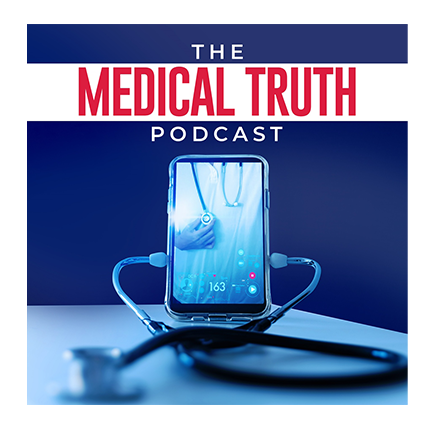In the latest podcast episode of the Medical Truth Podcast host James Egidio interviews James Roguski, as he delves deep into the controversial world of global health governance with expert James Roguski. The focus of our conversation is the World Health Organization’s (WHO) proposed amendments to the International Health Regulations (IHR) and the looming threat these pose to national sovereignty and personal freedoms.
James Roguski returns to our show, equipped with his thorough knowledge and critical insights into the inner workings of the WHO. The episode kicks off with a detailed examination of the amendments that could empower the WHO Director-General to declare health emergencies at will. This unprecedented power could usher us into an age where governance is dictated by fear, potentially leading to a global health dictatorship. Roguski highlights the vagueness of the definitions within these proposals and the potential for their misuse in controlling populations.
The conversation moves to the intertwined future of international travel, individual liberties, and the autonomy of nations. Roguski offers an unflinching analysis of the health surveillance system and its wide-reaching implications for citizens across the globe. The regulatory changes under discussion could lead to invasive health checks at borders, challenge the legitimacy of vaccines, and ultimately dictate who can cross international frontiers. Such measures, if implemented, could disrupt not just vacation plans but fundamental human rights.
Further on, the episode tackles the contentious issue of pathogen research funding, specifically the United States’ significant financial contributions to this field. The discourse touches upon the brewing conflict between biosecurity measures and the race for vaccine supremacy, questioning the WHO’s role in pathogen ownership and the vested interests of pharmaceutical giants. Here, Roguski suggests a possible underlying agenda – the transformation of healthcare into a vast market for future patients, with implications for drug development, vaccine compliance, and the role of digital currencies in enforcing health regulations.
Roguski’s revelations are startling and serve as a wake-up call to the public. He emphasizes the importance of understanding the implications of the WHO’s actions and encourages listeners to remain vigilant as we approach the World Health Assembly. The podcast ends on a thought-provoking note, inviting listeners to consider the real intentions behind the WHO’s moves and the potential consequences for global health freedom.
Our discussion is not just an ordinary episode; it’s an essential briefing for anyone concerned about the control over their health and rights. The intricacies of the WHO’s potential overreach are laid bare, making this episode a must-listen for those interested in safeguarding their autonomy in an increasingly interconnected world.
As we conclude this deep dive, it’s evident that the conversation on global health governance is far from over. Roguski’s expert analysis offers a critical perspective on the future of health regulations, one that will undoubtedly resonate with listeners long after the podcast ends.






